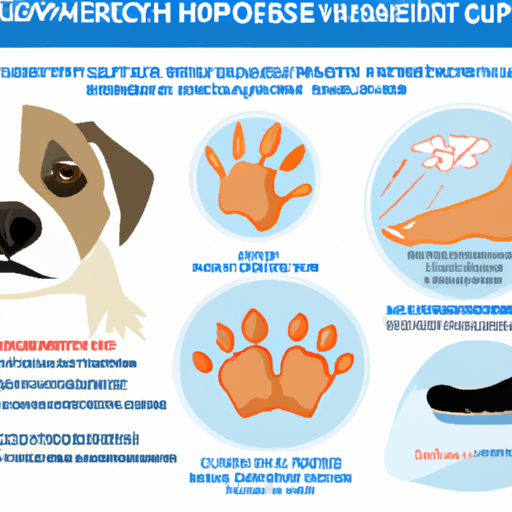“`markdown
What Causes Hyperkeratosis in Dogs?
As a loving pet owner, your dog’s health is always at the top of your mind. One condition that might be unfamiliar to you is hyperkeratosis. But don’t worry, we’re here to help you understand what it is, why it occurs, and how to manage it.
What is Hyperkeratosis?
Hyperkeratosis is a skin condition in dogs where there is an overproduction of keratin, the protein that makes up the outer layer of skin, hair, and nails. This often results in the formation of hard, thickened skin, particularly on the paw pads and nose. While it’s not life-threatening, it can be uncomfortable for your furry friend.
Causes of Hyperkeratosis in Dogs
Several factors can contribute to the development of hyperkeratosis in dogs. Here, we’ll explore the most common causes:
- Genetics: Some breeds like Dogues de Bordeaux, Irish Terriers, and Labradors, are genetically predisposed to hyperkeratosis.
- Age: Older dogs are more susceptible as their skin naturally thickens with age.
- Nutritional deficiencies: Lack of certain nutrients, notably zinc and Vitamin A, can lead to skin abnormalities.
- Underlying health conditions: Diseases such as canine distemper or leishmaniosis can trigger hyperkeratosis.
Symptoms and Diagnosis of Hyperkeratosis
The most prominent signs of hyperkeratosis in your dog might include:
- Hard, thickened skin on the paw pads or nose
- Cracked or bleeding skin
- Difficulty walking or limping
- Excessive licking or chewing of the affected area
Your vet can usually diagnose hyperkeratosis by examining your dog’s skin. However, in some cases, a biopsy may be necessary to rule out other conditions.
Treatment and Management of Hyperkeratosis
While there’s no cure for hyperkeratosis, with proper care, you can manage your dog’s symptoms and keep them comfortable. Here are some treatment options:
- Topical treatments: Creams or lotions containing salicylic acid can help to soften and reduce the excess keratin.
- Physical removal: In severe cases, the thickened skin may need to be carefully trimmed by a vet.
- Dietary supplements: Adding Omega-3 fatty acids or Vitamin E to your dog’s diet can improve their skin health.
Remember, always consult your vet before starting any new treatment or supplement.
Frequently Asked Questions
Q: Is hyperkeratosis contagious?
A: No, hyperkeratosis is not contagious. It’s a genetic or age-related condition.
Q: Can I prevent my dog from getting hyperkeratosis?
A: While you can’t prevent genetic or age-related hyperkeratosis, maintaining a balanced diet for your dog can help manage the condition.
Q: How often should I apply topical treatments?
A: Your vet will provide the appropriate treatment schedule based on your dog’s specific needs.
We hope that this guide has given you a better understanding of hyperkeratosis in dogs. Remember, early detection and management is key to keeping your furry friend comfortable and happy.
“`



